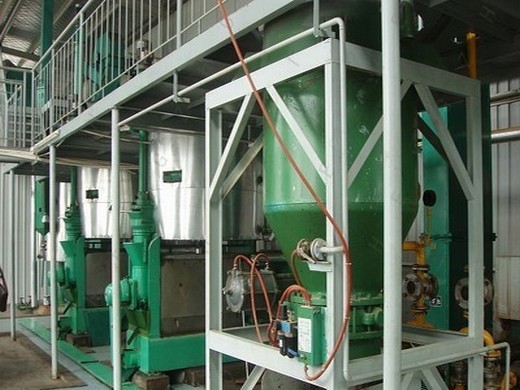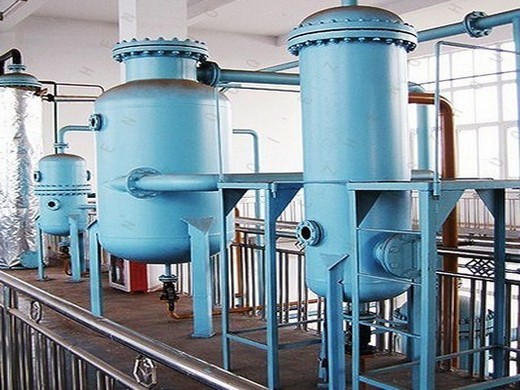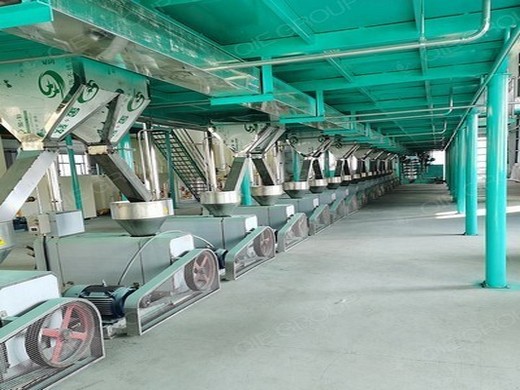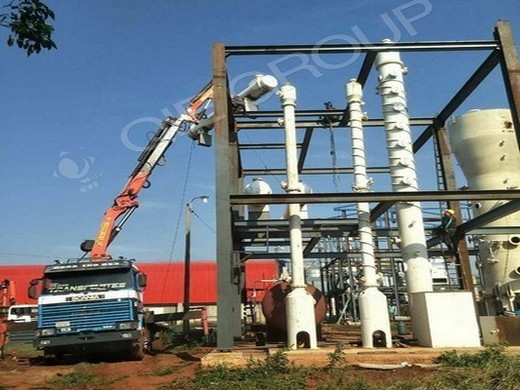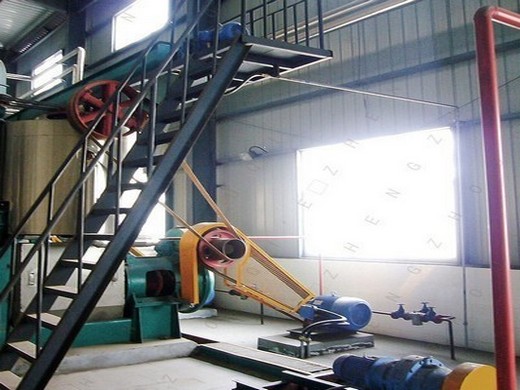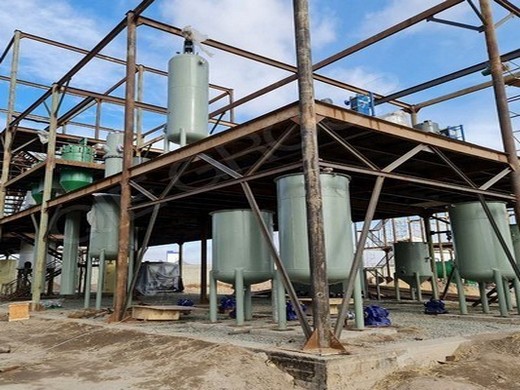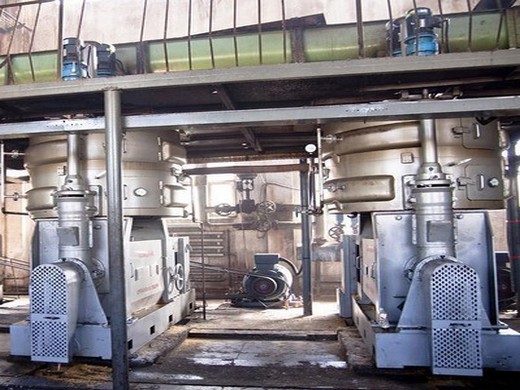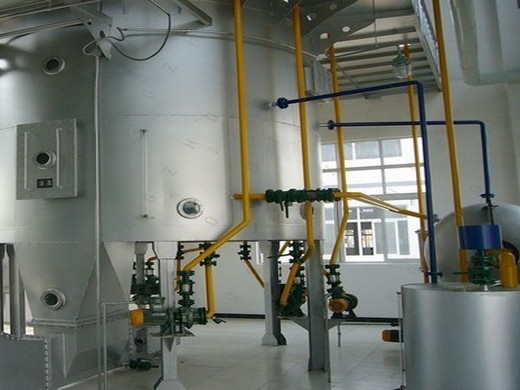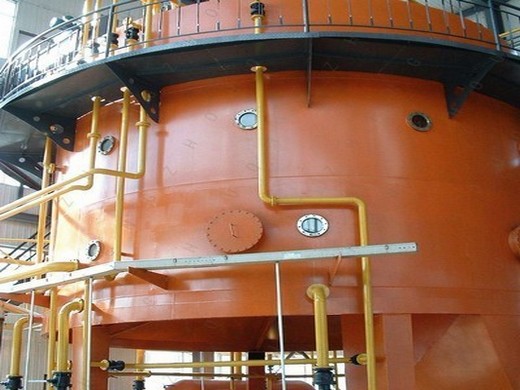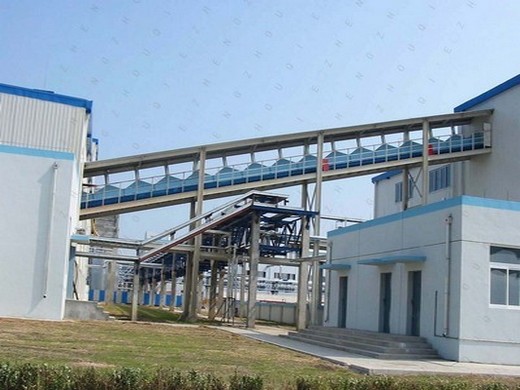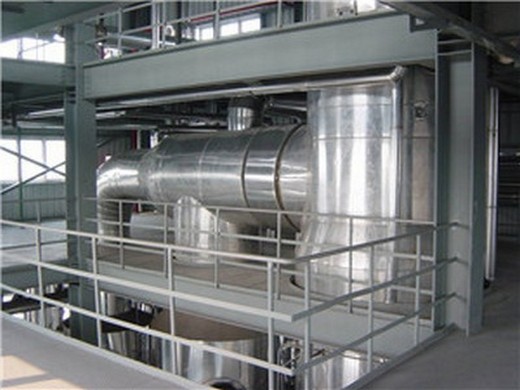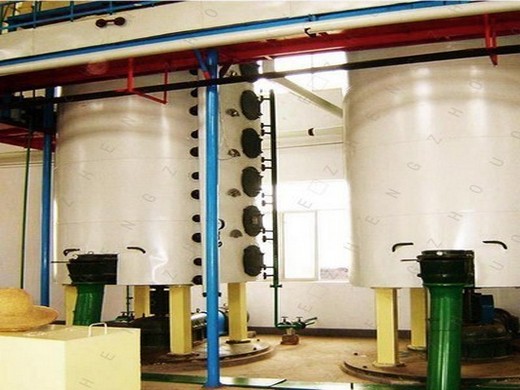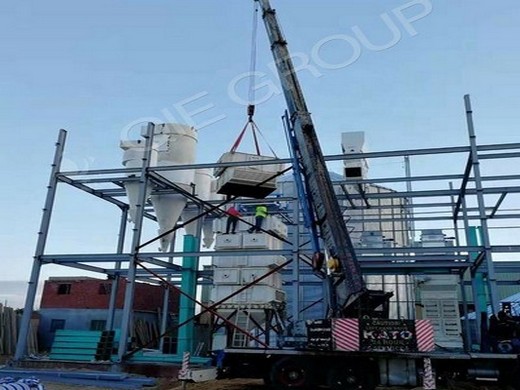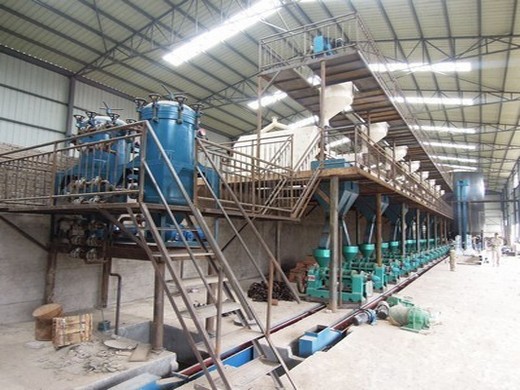Introductory Chapter: Heavy Crude Oil Processing - An
Extracting and processing of heavy crude oil require large amounts of water and energy and can potentially cause extreme damages to surrounding environment. This chapter will provide an overview on the challenges posed by heavy crude oils due to their unfavorable characteristics. Extraction of heavy oils is presented in Section 2.
Crude Oil Pretreatment: Desalting. Desalting is the first separation process that takes place at the front end of a petroleum refinery (i.e., prior to atmospheric distillation; Figure 1.5). Its primary objective is to prevent corrosion and fouling of downstream lines and equipment by reducing the oil’s salt content significantly.
Refining crude oil - inputs and outputs - U.S. Energy
Refineries can produce high-value products such as gasoline, diesel fuel, and jet fuel from light crude oil with simple distillation. When refineries use simple distillation on denser (heavier) crude oils, it produces low-value products. Heavy crude oils require additional, more expensive processing to produce high-value products.
302 to convert crude oil to diesel products are offered for sale by suppliers, of which machine oil purifier accounts for 21%, crude oil accounts for 1%. A wide variety of to convert crude oil to diesel options are available to you, such as light crude oil(lco).
Refining crude oil - the refining process - U.S. Energy
How crude oil is refined into petroleum products. Petroleum refineries change crude oil into petroleum products for use as fuels for transportation, heating, paving roads, and generating electricity and as feedstocks for making chemicals.. Refining breaks crude oil down into its various components, which are then selectively reconfigured into new products.
(b) Heavy fuel oil or marine diesel. Marine diesel or heavy fuel oil are toxic residuals from the distillation of crude oil with a boiling temperature between about 350 °C and 500 °C and a significantly increased viscosity compared to diesel. There more than just one specific fuel called marine diesel or heavy fuel oil.
Oil Extraction - an overview | ScienceDirect Topics
The oil extraction is the most important step in biodiesel production and it varies depending on the part that contains oil, either the kernel or the seed. They are ground using an industrial grade blender (Fig. 7.1).Apart from all these steps, the preequisite for oil extraction is the seed preparation [28].
Petroleum products are produced from the oil sands through 3 basic steps: Extraction of the bitumen from the oil sands, where the solids and water are removed. Upgrading of the heavy bitumen to a lighter, intermediate crude oil product. Refining of the crude oil into final products such as gasoline, lubricants and diluents.
Refining crude oil - U.S. Energy Information
Most refineries focus on producing transportation fuels. On average, U.S. refineries produce, from a 42-gallon barrel of crude oil, about 19 to 20 gallons of motor gasoline, 11 to 12 gallons of distillate fuel, most of which is sold as diesel fuel, and 4 gallons of jet fuel. More than a dozen other petroleum products are also produced in ...
offers 302 to convert crude oil to diesel products. About 1% of these are Crude Oil. A wide variety of to convert crude oil to diesel options are available to you, such as type.
Oil Sands 101: Process Overview Oil Sands Magazine
Petroleum products are produced from the oil sands through 3 basic steps: Extraction of the bitumen from the oil sands, where the solids and water are removed. Upgrading of the heavy bitumen to a lighter, intermediate crude oil product. Refining of the crude oil into final products such as
oil to diesel convert, oil to diesel convert Suppliers
A wide variety of oil to diesel convert options are available to you, There are 652 suppliers who sells oil to diesel convert on, mainly located in Asia. The top countries of suppliers are India, China, from which the percentage of oil to diesel convert supply is 1%, 99% respectively.
Coal liquefaction
Friedrich Bergius, also a German chemist, invented direct coal liquefaction (DCL) as a way to convert lignite into synthetic oil in 1913. Coal liquefaction became an integral part of the German industry during World War II. Coal liquefaction was an important part of Adolf Hitler’s four-year plan of 1936.
How to Make Petrol or Gas from Crude Oil.
The video shows how crude oil is mined and how petrol, gas, jet fuel, etc., are ‘refined’ from it. The scenes take place in Texas, USA.
Refining crude oil U.S. Energy Information
Most refineries focus on producing transportation fuels. On average, U.S. refineries produce, from a 42-gallon barrel of crude oil, about 19 to 20 gallons of motor gasoline, 11 to 12 gallons of distillate fuel, most of which is sold as diesel fuel, and 4 gallons of jet fuel. More than a dozen other petroleum products are also produced in
Heavy Fuel Oil an overview ScienceDirect Topics
SpeightJ.G.,in Advances in Clean Hydrocarbon Fuel Processing, 2011. 2.3.6 Gas oil and fuel oil. Heavy fuel oil comprises all residual fuel oils (including those obtained by blending). Heavy fuel oil constituents range from distillable constituents to residual (non-distillable) constituents that must be heated to 260 °C (500 °F) or more before they can be used.
Extraction of petroleum
Tertiary recovery begins when secondary oil recovery is not enough to continue adequate extraction, but only when the oil can still be extracted profitably. This depends on the cost of the extraction method and the current price of crude oil. When prices are high, previously unprofitable wells are brought back into use, and when they are low
LPG Gas Manufacturing Process: How is LPG Gas Made
Each extraction point in the LPG gas manufacturing process (NGL fractionation process) is temperature controlled to obtain a specific fraction including gasoline, naphtha, kerosene, diesel, light gas oil and heavy gas oil. These are then sent to unique streams for storage or possible further processing. LPG Gas Manufacturing for Refining
Desulfurization of heavy oil SpringerLink
Strategies for heavy oil desulfurization were evaluated by reviewing desulfurization literature and critically assessing the viability of the various methods for heavy oil. The desulfurization methods including variations thereon that are discussed include hydrodesulfurization, extractive desulfurization, oxidative desulfurization, biodesulfurization and desulfurization through alkylation
Heavy Oil Upgrading by the Separation and Gasification
barrel of oil produced. Upgrading can convert marginal heavy crude oil into light, higher value crude, and can convert heavy, sour refinery bottoms into valuable transportation fuels. On the downside, most upgrading techniques leave behind an even heavier residue whose disposition costs may approach the value of the upgrade itself.
How to make diesel fuel from used motor oil?__Waste
Then how to make diesel fuel from used motor oil? First, to pump dirty motor oil into oil distillation plant. Second, we need to heat dirty motor oil and keep it in a best temperature for best diesel quality. Fuel oil will be converted to diesel oil gas when get heating. Then our cooling system will cool diesel oil gas into diesel.
Crude Oil: Energy Source Fact File! Fun Kids the UK’s
Crude Oil: Energy Source Fact File! What is crude oil? How does crude oil generate electricity? Is crude oil a fossil fuel or a renewable? Here’s the need-to-know stuff about the energy source, crude oil! Description. Crude oil is a dark liquid. It is found in reservoirs deep under the ground. How was it formed? Millions of years ago the world’s oceans were filled with plants and plankton
From Crude Oil How Oil Refining Works HowStuffWorks
The problem with crude oil is that it contains hundreds of different types of hydrocarbons all mixed together. You have to separate the different types of hydrocarbons to have anything useful. Fortunately there is an easy way to separate things, and this is what oil refining is all about.
Turning Crude Oil Into the Stuff We Use The Atlantic
Crude oil is far from being one homogenous substance. Its physical characteristics differ depending on where in the world it’s pulled out of the ground, and those variations determine its usage
Petroleum
The name petroleum covers both naturally occurring unprocessed crude oil and petroleum products that are made up of refined crude oil. A fossil fuel, petroleum is formed when large quantities of dead organisms, mostly zooplankton and algae, are buried underneath sedimentary rock and subjected to both intense heat and pressure.
Introductory Chapter: Heavy Crude Oil Processing An
Extracting and processing of heavy crude oil require large amounts of water and energy and can potentially cause extreme damages to surrounding environment. This chapter will provide an overview on the challenges posed by heavy crude oils due to their unfavorable characteristics. Extraction of heavy oils is presented in Section 2. Section 3
Overview of Crude Units University of Oklahoma
Overview of Crude Units Crude units are the first units that process petroleum in any refinery. There objective is to separate the mixture into several fractions like naphtha, kerosene, diesel and gas oil. A schematic diagram of an atmospheric crude fractionation unit is shown in Figure 1-1. Crude water HEN HEN DESALTER sour water FURNACE steam
Generations of Crude Oil
In my research, I have mentioned the extraction of crude oil and some other methods like biodiesel through ethanol, algal oil and plastic pyrolysis oil, which could be possible alternatives in the
Introductory Chapter: Heavy Crude Oil Processing An
Extracting and processing of heavy crude oil require large amounts of water and energy and can potentially cause extreme damages to surrounding environment. This chapter will provide an overview on the challenges posed by heavy crude oils due to their unfavorable characteristics. Extraction of heavy oils is presented in Section 2. Section 3
ReOil: Getting crude oil back out of plastic OMV
Crude oil is the basis for plastic. In order to produce crude, complex machinery is needed to identify underground deposits. If a find is indicated, test drilling is undertaken. Once oil is discovered, a conveyor system is erected on the site. The crude is then taken to the refineries, where it is broken down and then reassembled into new
Oil Sands Extraction and Processing Natural Resources
Once the oil sand is crushed, hot water is added so it can be pumped to the extraction plant. At the extraction plant more hot water is added to this mixture of sand, clay, bitumen, and water in a large separation vessel where settling time is provided to allow the various components to separate. During separation, bitumen froth rises to the
Garbage Into Oil MIT Technology Review
The system uses water, pressure, and heat to convert organic material into clean fuel gas, absorbent carbon (like that used in water filters), minerals for fertilizer, and a crude oil that is
Turning Crude Oil Into the Stuff We Use The Atlantic
Crude oil is far from being one homogenous substance. Its physical characteristics differ depending on where in the world it’s pulled out of the ground, and those variations determine its usage
Carbon dioxide emissions per barrel of crude The
Carbon dioxide emissions per barrel of crude (The Quiet Road) So how much Oil is burned on the planet in a year? November 6th, 2009 1:19pm by Got 0 Plans Page 2 Snowboarding Forum Snowboard Enthusiast Forums
crude oil refinery plant manufacturers how petroleum is
Hi Friend,It is nice to write to you. This is Patrick Cochrane from Canada. I am interested in placing your crude oil refinery plant manufacturers how petroleum is refined into gasoline and oil and gas refinery on the market.Whats the shipping cost to Canada by air?If you have any other product that you believe I could have interest in please let me know.Kind RegardsPatrick CochraneFirst Project1.
